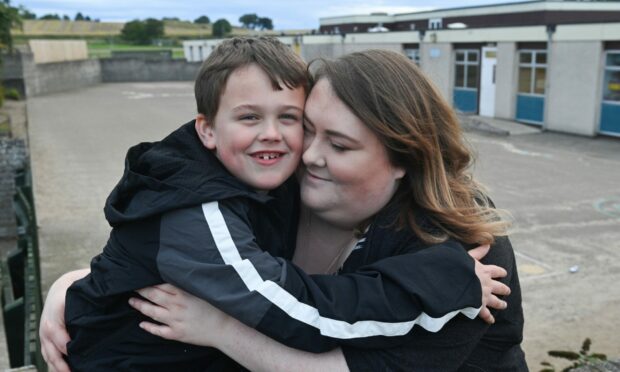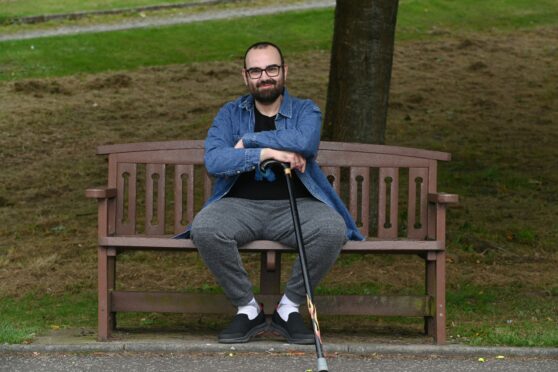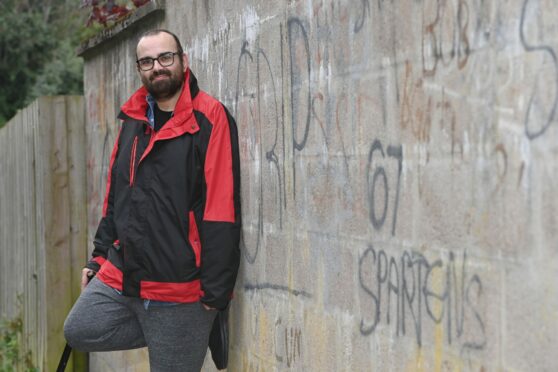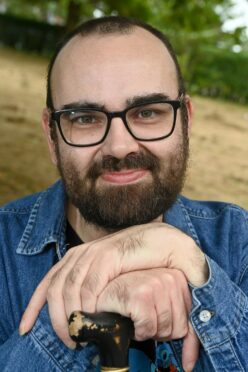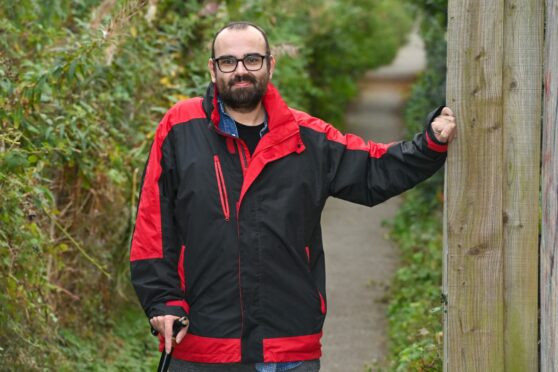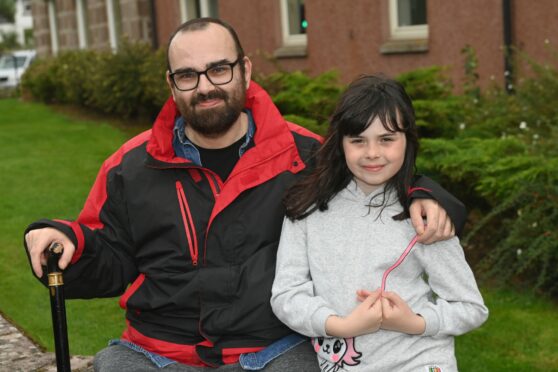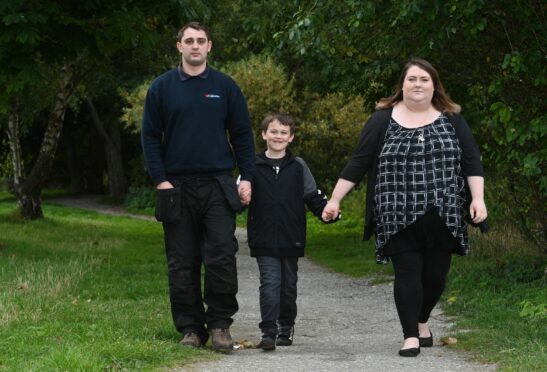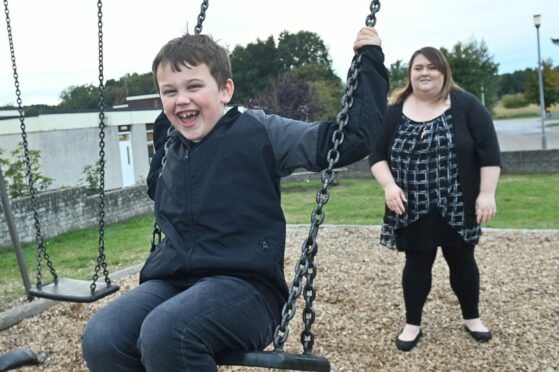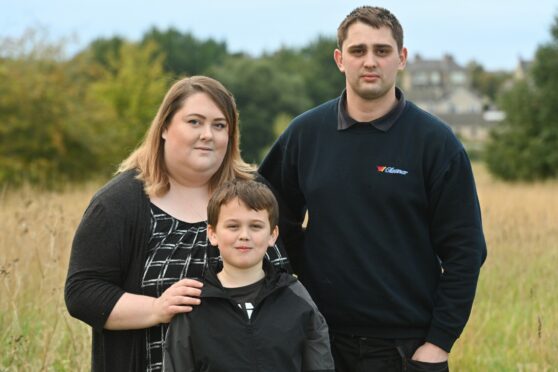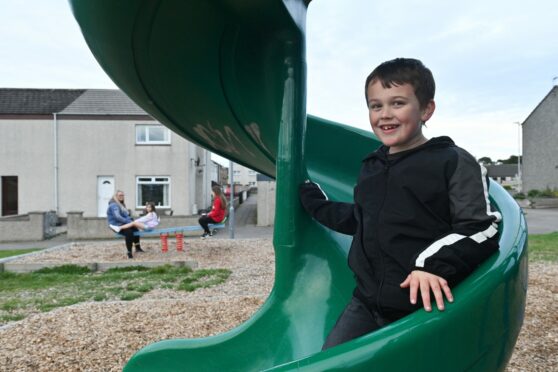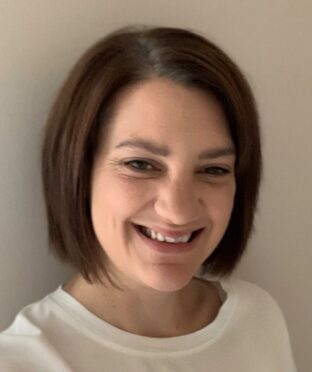“We’re not broken, we’re not strange, we’re not weird – we just see the world in a very different way.”
For most of his life, Ross Fraser felt misunderstood, worthless and cast aside by society.
The reality is that Ross is a person like you and me, his brain just works a bit differently from other people.
After a lifetime of struggling to make sense of the world around him, Ross was eventually diagnosed with autism at the age of 41.
Choking back tears, Ross eloquently explains how he is using the pain and turmoil he experienced as the motivation to ensure no-one else goes through what he did.
Echoing Ross’s call for change is mum Laura McBean who has been struggling for years to get support for her seven-year-old son Gregor who shows all the signs of autism.
Today we speak to Ross, Laura and Joanna Panese, from the charity Scottish Autism, to find out the impact of late and early diagnosis of autism and what needs to change.
Ross Fraser
Struggling to communicate on a planet he doesn’t understand, Ross Fraser recognises a lot of himself in the blue koala-like alien from the children’s Disney show Lilo & Stitch.
“I relate to Lilo & Stitch, which is about an alien that finds himself on this planet, doesn’t know how to communicate and doesn’t understand the society it finds itself in,” said Ross.
“To be honest it was the first character I really identified with. He felt lost, didn’t know how to really communicate with people.
“All he wanted was a family and somewhere he felt he belonged.
“I guess I see a lot of myself and my life in Stitch.”
Since the age of six, Ross knew there was something about himself that he couldn’t quite figure out.
“There was something that I couldn’t understand and that stayed with me, and the older I got the harder that was the deal with,” said Ross.
Feeling misunderstood, lost and alone, Ross left school with no qualifications and no sense of purpose in life.
“To be completely honest with you, you know how they say that life is an adventure and life is a game, well I didn’t really get to play,” said Ross.
“I got so frightened and intimidated by people at a young age that I hid in front of a TV in a room for pretty much 30 years.”
It wasn’t until the age of 41 when Ross was finally diagnosed with autism and attention deficit hyperactivity disorder (ADHD) a year later.
Asked if the diagnosis lifted a weight off his shoulders, Ross said: “Yes and no. I went to a special needs school and left basically thinking that I was stupid and was not able to be taught.
“Finding out I was autistic allowed me to realise that the world was impacting me very deeply, especially sensory things that I had never been aware of.
“I thought my hearing was really bad but it turns out I can actually hear a lot and that is the problem, it all jams together and that’s why I struggle hearing people talking.
“It’s just little things like that; you get answers to questions you’ve had for a very long time and you need those answers because it’s part of who you are.
“It’s part of your identity because you are different and you know you are.”
For Ross, being autistic means that he sees the world in a different way.
“Not only do you think differently and you communicate differently, you see the world in a very different way as well.
“There’s two sides to your brain and there’s one side that’s constantly taking in information and processing it.
“You never get any peace, there’s always something in your head, and that’s why autistic people find it very difficult to sleep at night because there’s just no way of turning your brain off.
“You either have to be so tired that you naturally fall asleep or hope that you don’t have so much in your head that it will stop you from sleeping.”
Not only has Ross had to blindly navigate his way through life with autism, in 2007 he also broke his spine.
But during this dark time he found light in the form of his beautiful wife Jennifer who he met online.
“At the time, she was in physio in Aberdeen and I was in physio in Huntly, and because we were both in a lot of pain, we connected instantly.
“She was the first person who really saw me and didn’t really hold my shortcomings against me.”
The couple went on to have their daughter Megan, now aged nine, who has also been a tower of strength to Ross.
“The other day my daughter said to me ‘I’m really proud of you dad, you’re amazing’ and she gave me a big hug.
“I broke down in tears.”
Although Ross is reluctant to be in the spotlight, he knows that by sharing his story it will not only raise awareness and understanding of autism but hopefully lead to earlier diagnosis.
He is also campaigning for change through his Facebook page and has released his first book “Kaleidoscope”, an autism-friendly traditional picture book.
“I want to change the perception of autism once and for all; it’s my words and my experiences but it is for the community as a whole, now and in the future.
“If change is like throwing pebbles into the ocean, shouldn’t as many of us be doing it as possible to create the biggest wave?”
For more information about Ross’s campaign visit his Facebook page.
Laura McBean
“Wait for me guys” shouted little Gregor McBean as he made his way through the packed audience and on to the stage where the rest of his nursery class were already standing, waiting to perform.
Watching helplessly as her tiny tot made his way up to the stage on his own, parents sniggering in the background, broke his mum Laura’s heart.
Before the curtains had gone up on the nursery Christmas show, Laura and her husband Andrew had been pulled aside, in front of hundreds of parents, and told that Gregor would have to sit next to her instead of with his friends.
Unsurprisingly Gregor was distraught, but once he was reunited with his friends on stage, he shone like the little star he is.
“Gregor started to have a meltdown as he didn’t want to be segregated like that, it was horrible,” said Laura, 28, who lives in Elgin.
Throughout nursery, Gregor was often treated like “a naughty child” while Laura struggled with an overwhelming sense that she was failing as a parent.
Far from being a “naughty child”, Gregor was showing all the signs of autism and ADHD.
Only now that Gregor is in primary three is he getting the support and understanding that Laura feels should have been in place in those early nursery years.
“Nothing could have prepared me to be a parent more so when I felt so alone and that my child was not only different to children around him but also getting treated differently.
“He’s doing really well at school and the teacher told me that he’s nothing like the child the nursery made out he was.
“When she said that, I started crying as it was like someone eventually saw that Gregor is a lovely little boy who loves Lego, cuddles and jigsaw puzzles.”
After years of being passed from pillar to post by various healthcare professionals and nurseries, Gregor was eventually diagnosed with ADHD in primary school and is being supported by the charity Grampian Autistic Society.
Feeling judged, helpless and made to feel like a bad parent has prompted Laura to speak out to ensure that no other child with autism, or their parents, go through the same experience.
“One of the main issues is that they need to provide more funding to support children like Gregor,” said Laura.
“When Gregor was at nursery, I was told at one point that they might not have the funding to continue Gregor’s one-to-one support, so he wouldn’t be able to attend nursery.
“I said I thought every child was entitled to go to nursery, it was completely mind boggling.
“It really was horrible and I was quite upset about it.”
Laura would also like to see a better system in place so that children are diagnosed as early as possible and receive the help they need sooner.
“When Gregor was diagnosed with ADHD, it was through a simple tick box sheet that myself and his teacher filled out,” said Laura.
“I couldn’t believe that after years of trying to get help, all it took was a tick box sheet in the end.”
Thanks to teachers at his primary school and the support of the charity Grampian Autistic Society, Gregor is thriving.
“The charity has been amazing as they organise play schemes in Moray which Gregor loves,” says Laura.
“It was such a success that it inspired me to set up a Facebook page so all the parents in Moray with children who have autism can keep in touch.”
Any parents who would like to join Laura’s Facebook group can do so online at Moray’s We Are Not Alone Kids With Autism parents group.
Joanna Panese
Sadly Laura and Ross’s experiences are all too familiar to Joanna Panese, from Scottish Autism.
Since April last year, the beginning of the coronavirus pandemic, the charity has handled 11,050 enquiries through its phone line, email and live chat.
Of those calls, 1,231 were in relation to diagnosis, either people looking to seek a diagnosis, or those already in the process of getting a diagnosis.
“We are facing challenges around diagnosis as the pandemic has had a significant impact on diagnostic teams being able to provide appointments and that has created a backlog.
“We’ve spoken to a number of families across Scotland who have been waiting for an awfully long time and that in itself brings challenges because a large number of the services that those families wish to access are only available once a diagnosis has been sought and given.”
As one of the largest providers of autism services in Scotland the charity supports thousands of children, adults and families through its commissioned services, advice line, community projects, post-diagnosis support and its national assessment and diagnosis service.
Although the charity is a lifeline for thousands of people throughout Scotland, Joanna says there is an urgent need for more funding.
“In the immediacy we need more funding so that we can start to reduce waiting lists, but I think as well we need to think differently about how we’re supporting that diagnostic pathway for people in Scotland,” said Joanna.
“We also need a better understanding and awareness of autism across Scotland so that communities can support each other.”
On a daily basis the charity hears from people like Laura and Ross who feel like they are being ignored by society.
“Every day we hear from people who feel they are not being understood, who don’t feel part of the community and who aren’t able to access the type of employment they would want to access,” said Joanna.
“So we do need a better understanding, awareness and to create spaces where the autistic voice can be heard and for us to learn from it.”
And Joanna is encouraging people to get in touch through the Scottish Autism advice line, open from Tuesday to Friday, 10am to 4pm, on 01259 222022, via email advice@scottishautism.org or at the website through a live web chat.
NHS Grampian did not respond to the Press and Journal’s request for a comment while NHS Highland said no-one was available to comment.
